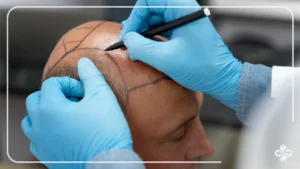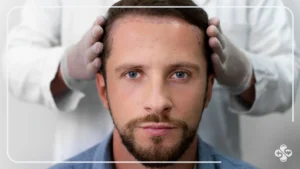Introduction
Does hair transplantation cause cancer? This question – often posed by those interested in cosmetic and medical treatments – has raised discussions worldwide. As the popularity of hair transplantation surges, it is essential to closely examine its safety profile and understand the underlying medical facts. In this article, we provide a detailed exploration of hair transplantation, covering everything from its definition and techniques to a review of current research and expert insights. Our aim is to help you make well-informed decisions by presenting accurate information and emphasizing the importance of following reliable medical advice.
Table of Contents
- Understanding Hair Transplantation
- Examining the Relationship Between Hair Transplantation and Cancer
- Scientific Studies and Research Reviews
- Expert Opinions and Insights
- Hair Transplantation Damages and Cancer: Facts and Realities
- Conclusion and Recommendations
- Frequently Asked Questions (FAQ)
Understanding Hair Transplantation
Hair transplantation is a surgical cosmetic procedure designed to restore hair density in areas affected by baldness or thinning. Over the years, advancements in technology have significantly improved outcomes while reducing recovery time. This treatment is not merely about improving appearance but also contributes to a boost in self-confidence and overall quality of life.
A. Definition and Procedures
The process of hair transplantation typically involves several steps. It begins with a thorough evaluation of the patient and ends with transplanting hair follicles into the desired areas. There are two primary techniques used:
- Follicular Unit Extraction (FUE): Individual hair follicles are carefully extracted from a donor area, one by one, and then implanted into the bald or thinning regions.
- Follicular Unit Transplantation (FUT): A thin strip of scalp containing hair follicles is removed from the donor area and divided into smaller follicular units before being transplanted.
Each technique has its own merits, and the choice depends on the patient’s condition and desired results.
B. Benefits of Hair Transplantation
The advantages of undergoing a hair transplant extend far beyond cosmetic improvement. Among its key benefits are:
- Enhanced Appearance: The new hair density provides a more youthful and natural look.
- Increased Self-Confidence: Restoring one’s hair can have a positive impact on social and professional life.
- Technological Advancement: Modern techniques offer safety and long-lasting results, reducing the need for further interventions.
- Minimized Downtime: Due to continuous innovations, patients enjoy quicker recovery phases compared to earlier methods.
C. Innovations and Technological Advancements
Success in hair transplantation is largely attributed to continuous advances in medical technology. Innovative techniques allow for precise extraction and implantation, which minimizes scarring while optimizing overall outcomes.

For more information about hair transplantation, please read this article.
Examining the Relationship Between Hair Transplantation and Cancer
One of the most common questions in the realm of cosmetic surgery is, does hair transplantation cause cancer? This inquiry arises frequently both among medical professionals and patients alike. Despite some social media reports and simplified discussions, current research indicates that there is no direct cause-and-effect relationship between the procedure and cancer development.
A. Common Concerns and Misconceptions
Many worry that exposure to chemicals or anesthetic agents during surgery might trigger severe health complications, including cancer. However, most scientific studies have shown that when performed under strict sanitary conditions, the surgery is extremely safe. Concerns generally focus on the quality of the disinfectant materials or anesthesia used. When proper safety standards are maintained, these risks remain exceptionally low.
B. Comparing Potential Risks
When comparing the potential hazards of hair transplantation with other known risk factors, the procedure itself does not present a significant threat if done by well-trained professionals using modern techniques. On the contrary, factors such as genetics, lifestyle, and environmental influences are much more likely to impact cancer risk than the transplant procedure.
For more information on whether does hair transplantation cause cancer, please read this article.
Scientific Studies and Research Reviews
In recent years, scientists and medical professionals have taken a keen interest in evaluating the safety of hair transplantation. Numerous studies have been conducted to assess whether the procedure impacts cellular changes that could lead to cancer. One key question raised in the field is: does hair transplantation cause cancer?
A. Experimental Studies and Medical Analysis
Experimental research has consistently indicated that there is no solid evidence linking hair transplantation to cancer development. Findings demonstrate that when executed under proper sterile conditions with advanced surgical protocols, the procedure is safe. In these studies, the materials used during hair transplantation, when applied in the correct amounts and under controlled conditions, have not been found to induce any harmful cellular changes that could potentially trigger tumor formation.
B. Chemical Analysis and Drug Interactions
Some research has focused on analyzing the chemical agents used during the procedure. The results reveal that:
- The exposure levels to any chemical substances are minimal.
- These chemicals, when used following strict medical guidelines, do not induce immune system changes that could lead to cancer.
- Maintaining updated sterilization procedures and safety protocols is essential as technologies evolve.
C. Literature Reviews
Comprehensive reviews of worldwide research confirm that:
- A vast majority of scientific studies affirm the safety of hair transplantation when conducted in reputable clinics.
- There are no statistically significant correlations between hair transplantation and the onset of any specific cancer type.

Expert Opinions and Insights
The credibility of medical procedures often rests on the insights of experts with years of hands-on experience. Here we summarize some key expert opinions on the subject of hair transplantation:
A. Expert Viewpoint: The Role of Technology and Sterility
Many professionals stress that strict adherence to sterilization and using up-to-date medical equipment greatly reduces any potential risks. As one expert puts it:
“Hair transplantation is performed in controlled, sterile environments using state-of-the-art equipment, making complications—including cancer—exceedingly rare.”
B. The Importance of Post-Operative Monitoring
Cosmetic surgeons also emphasize the need for regular post-surgery check-ups. Monitoring a patient’s condition after the transplantation is integral in catching any unforeseen issues at an early stage. It is imperative that any abnormal symptoms are promptly evaluated to ensure timely medical intervention.
C. Environmental and Genetic Factors
Furthermore, some experts argue that genetic predisposition and environmental exposures play a far more substantial role in cancer risk than do cosmetic procedures. Thus, a holistic approach that considers lifestyle and genetic factors is more beneficial than focusing solely on hair transplantation.

Hair Transplantation Damages and Cancer: Facts and Realities
Despite widespread rumors and isolated anecdotes, scientific evidence reassures us that hair transplantation is a safe and reliable procedure when performed according to best practices. Below is an outline of the key facts about does hair transplantation cause cancer:
A. No Direct Scientific Evidence
To date, there is no concrete evidence from specialized research linking hair transplantation directly to the onset of cancer. Properly conducted procedures, following stringent medical standards, show no negative cellular effects.
B. Consideration of Other Influences
It is crucial to understand that factors such as family history, exposure to environmental toxins, and overall lifestyle have a more pronounced impact on cancer risk than a cosmetic procedure ever could. Simplifying the issue by attributing cancer solely to hair transplantation omits a range of complex health determinants.
C. Safety of Modern Techniques
Modern surgical methods include advanced sterilization systems and continuous monitoring during procedures. These technological improvements mitigate the risks of procedural errors or chemical reactions that could otherwise pose health issues.
- Minor side effects like temporary redness or mild swelling may occur but are easily treatable with no lasting effect on health.
- Maintaining a safe environment in the operating room is key to minimizing even the smallest risks.
D. Adherence to Medical Advice
Before undergoing a hair transplant, it is essential for patients to consult with healthcare professionals. Following post-operative care instructions precisely can ensure optimal recovery and lasting results.

Conclusion and Recommendations
Based on our comprehensive review, hair transplantation is a safe and beneficial procedure for many individuals, with no conclusive scientific proof that does hair transplantation cause cancer. The aesthetic and psychological benefits far outweigh the minimal risks when the procedure is performed by certified experts.
In conclusion, current evidence confirms that hair transplantation is a safe and effective option. There is no reliable data to support the claim that it causes cancer. Instead, the procedure offers significant aesthetic improvements and boosts self-confidence when carried out correctly.
MedTouran Company is a medical facilitation company that plans and executes travel to Iran and provides patient treatment services from start to finish, ensuring that travelers can undergo their treatments without any worries.
From consultation to hotel booking, transportation, appointment scheduling, and doctor coordination, MedTouran takes care of everything.
Contact us now and take advantage of our free online consultation.
Frequently Asked Questions (FAQ)
Q: Are there any serious complications following a hair transplant procedure?
A: When performed in accredited clinics with modern techniques, complications are very rare and typically minor.
Q: What criteria should be considered when choosing a hair transplant clinic?
A: It is crucial to select a clinic with a strong reputation, proper accreditation, and strict adherence to hygiene and sterilization standards.
Q: Are there any specific warnings that patients should be aware of before the procedure?
A: Yes, patients should discuss their full medical history and any known allergies with their physician to ensure the treatment is suitable for them.
Q: Do factors such as age or genetics affect the results of hair transplantation?
A: Absolutely. Factors like age and family history can influence hair growth post-transplant, so a comprehensive evaluation is recommended before proceeding.










